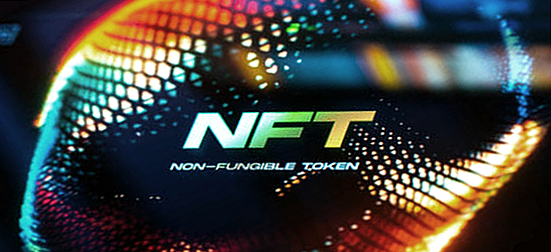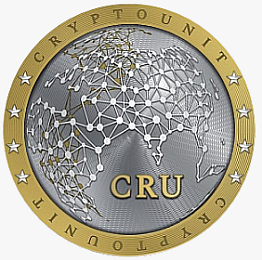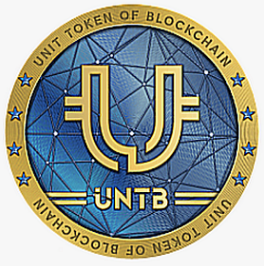Accredited InvestorsAltcoinAnatoli UnitskyAnti-Money Laundering (AML) In CryptoAPIArbitrageArtCoin TokenArticle DirectoryASICAuction Terminology GlossaryBasics of Stock Market InvestingBear MarketBest Crypto Payment Provider In the WorldBitcoinBlockchainBlockchain ConfirmationBlockchain Consensus MechanismBlockchain ForkBlockchain GlossaryBored Ape Yacht ClubBuild a Business That OutperformsBull MarketBuying SkyWay SharesByzantine Fault Tolerance (BFT) ExplainedCasascius CoinCentral Bank Digital Currency (CBDC)Centralized Crypto ExchangeCoinCoinsetCold WalletCollateralCommodity Futures Trading Commission (CFTC)Cross-Chain TechnologyCRUCrypto ExchangeCrypto GlossaryCrypto JokesCrypto Terms to KnowCrypto TickerCryptocurrencyCryptographyCryptojackingCryptounit BlockchainCryptounit GlossaryCryptounit ProgramdApp (Decentralized Application)Dead CoinDecentralized Exchange (DEX)Decentralized Finance (DeFi)Difference Between Bitcoin and EthereumDifferent Ways of Investing MoneyDigital CurrencyDistributed LedgerDo Your Own Research (DYOR)Dollar Cost Averaging (DCA)Dow Jones Industrial Average (DJIA)EncryptionERC-20ERC-721EthereumEvoScentFear Of Missing Out (FOMO)Fear, Uncertainty and Doubt (FUD)Fiat MoneyFNT Fintech CompanyGenesis BlockGlobal Unit PayGlossary of Banking TermsGlossary of Business TermsGlossary of Financial TermsHalvingHODLHot WalletHow Do I Start InvestingHow Rich is Satoshi Nakamoto?How to Create a BlockchainHow to Find Private InvestorsHow to Get Into FintechHow to Program Smart ContractsI Am Thrilled to Be a Part of This Global ProjectInitial Coin Offering (ICO)Initial Public Offering (IPO)Initial Token Offering (ITO)Innovation Basalt TechnologyInnovative Transportation TechnologiesInternational Bank Account Number (IBAN)Investing in Gold Mining StocksInvesting in Gold MiningJagerJoy of Missing Out (JOMO)Know Your Customer (KYC)LedgerLiquidity in CryptocurrencyMaker and Taker Fees in Crypto TradingMarket Capitalization (Market Cap)Meme CoinMetal Credit CardMetaMaskMillenials Now Have Access to Generational WealthMy Best Investment EverNew Digital EvolutionNFT GlossaryOff-Chain TransactionsOn-Chain TransactionsOpen Edition NFTPeer-to-Peer (P2P)Personal Loan GlossaryProbably the Best STO on the MarketProof of Stake (PoS)Real Estate Glossary of TermsReal Estate Investing GlossaryRebase TokenSecurities and Exchange Commission (SEC)Security Token ExchangesSecurity Token Offering (STO)Soulbound Decentralized Identities for Security TokensSoulbound ID Launch by Stobox Proves a SuccessSoulbound TokensStoboxStock Market GlossaryTestimonialsTether Platform and Token (USDT)UnitEx ExchangeUnitsky String TechnologiesUNTBUSDUValidatorWe Started Investing When We Were 25What are Blue Chip NFT?What are Blue Chip Stocks?What are Crypto Assets?What are Crypto Smart Contracts?What are CryptoPunks NFT?What are Digital Assets?What are Digital Collectibles?What are Gas Fees?What are Gas Wars?What are Hashmasks?What are Non Fungible Tokens?What are Non-Sufficient Funds (NSF)?What are Soulbound Tokens (SBT)?What are Stablecoins in Crypto?What are Transactions Per Second (TPS)?What are Utility NFTs?What are Utility Tokens?What Does Burning Crypto Mean?What Does Diamond Hands Mean?What Does Paper Hands Mean?What Does To The Moon Mean?What Does WAGMI Mean?What Happened to Satoshi Nakamoto?What is a 51% Attack?What is a Baby Boomer?What is a Backlink?What is a Banner?What is a Barcode?What is a Bid-Ask Spread in Crypto?What is a Block in Blockchain?What is a Block Reward?What is a Blockchain Address?What is a Blockchain Node?What is a Blockchain Oracle?What is a Blog?What is a Bond?What is a Bot?What is a Broker?What is a Business Accelerator?What is a Cash Cow?What is a Commercial Bank?What is a Commodity?What is a Con?What is a Credit?What is a Credit Limit?What is a Credit Rating?What is a Crypto Airdrop?What is a Crypto Bridge?What is a Crypto Scam?What is a Crypto Token?What is a Crypto Wallet?What is a Crypto Whale?What is a Crypto Winter?What is a Cryptocurrency Public Ledger?What is a Cryptocurrency Roadmap?What is a DAO?What is a Dark Pool?What is a Day Trader?What is a Dead Cat Bounce?What is a Default?What is a Derivative?What is a Digital Credit Card?What is a Fiscal Quarter?What is a Fungible Token?What is a Governance Token?What is a Grace Period?What is a Hard Fork?What is a Hot Wallet?What is a Hybrid Blockchain?What is a Hybrid PoW/PoS?What is a Joint Account?What is a Market Cap?What is a Merkle Tree in Blockchain?What is a Mining Farm?What is a Nonce? What is a PFP NFT?What is a POS System?What is a Prepaid Card?What is a Private Blockchain?What is a Private Key?What is a Public Blockchain?What is a Public Key?What is a Reserve Currency?What is a Ring Signature?What is a Routing Number?What is a Rug Pull in Crypto?What is a Safe Deposit Box?What is a Satoshi?What is a Security Token?What is a Seed Phrase?What is a Shitcoin?What is a Sidechain?What is a Soft Fork?What is a Spot Market?What is a State Bank?What is a SWIFT Code?What is a Tax Identification Number (TIN)?What is a Time Deposit?What is a Transaction Account?What is a Variable Interest Rate?What is a Virtual Assistant (VA)?What is a Virtual Card?What is a Virtual Currency?What is a Visa Card?What is a Whitelist in Crypto?What is a Whitepaper?What is Accounts Payable (AP)?What is AMA in Crypto?What is Amortization?What is an Accrual?What is an ACH Transfer?What is an Actuary?What is an Addendum?What is an Algorithm?What is an Angel Investor?What is an Annuity?What is an Asset?What is an ATM?What is an Atomic Swap?What is an Audit?What is an Avatar?What is an EIN?What is an Embargo?What is an Entrepreneur?What is an IDO (Initial Dex Offering)?What is an Interest Rate?What is an Internet cookie?What is an Investment Bank?What is an NFT Drop?What is an NFT Floor Price?What is an Ommer Block?What is an Orphan Block?What is an Outstanding Check?What is an Overdraft?What is Artificial Intelligence (AI)?What is B2B (Business-to-Business)?What is B2G (Business-to-Government)?What is Bartering?What is Bitcoin Dominance?What is Bitcoin Pizza Day?What is Blockchain Immutability?What is Blockchain Used For?What is BRICS?What is Business-to-Consumer (B2C)?What is C2C (Customer to Customer)?What is Capitalism?What is Catfishing?What is CFD Trading?What is Check Kiting?What is Cloud Mining?What is Communism?What is Content Marketing?What is Decentralization in Blockchain?What is DeFi in Crypto?What is Delisting?What is Depreciation?What is Digital Marketing?What is Diversification?What is Double Spending?What is Dumb Money?What is Dumping?What is Earnings Per Share (EPS)?What is Economics?What is Email Marketing?What is Equity?What is Etherscan?What is Fintech?What is Foreign currency?What is Forex?What is Fundamental Analysis (FA)?What is GameFi?What is Generative Art NFT?What is Gwei?What is Hard Currency?What is Hash Rate?What is Hashing in Blockchain?What is Inflation?What is Initial Game Offering (IGO)?What is Interest?What is Interest Income?What is Mainnet?What is Mastercard?What is Metaverse in Crypto?What is Mining in Cryptocurrency?What is Minting NFT?What is Mobile Banking?What is Money Laundering?What is NFT Alpha?What is NFT Metadata?What is NFT Rarity?What is NGMI Meaning?What is Nominal Interest Rate?What is Online Banking?What is Open-End Credit?What is OpenSea NFT Marketplace?What is Personal Identification Number (PIN)?What is Play-to-Earn?What is Polygon?What is Proof of Authority (PoA)?What is Proof of Work (PoW)?What is Public Key Cryptography?What is Pump and Dump?What is Quantum Computing?What is Refinancing?What is Retail Banking?What is Ripple?What is Sharding?What is Slippage in Crypto?What is Smart Money?What is Solvency?What is Soulbound ID?What is SSL?What is Staking in Cryptocurrency?What is Technical Analysis (TA)?What is Testnet?What is the Ask Price?What is the Better Business Bureau (BBB)?What is the Bid Price?What is the Dark Web?What is the InterPlanetary File System (IPFS)?What is the Gold Standard?What is the Lightning Network?What is the Prime Rate?What is the Sandbox?What is the Secondary Market?What is the World Bank?What is Tier 1 Capital?What is Tokenomics?What is TRC-20?What is Universal Banking?What is Unspent Transaction Output (UTXO)?What is Usury?What is Volatility in Crypto?What is Wash Trading?What is Web3?What is Whisper?What is XRP?What is Zero-Knowledge Proof (ZKP)?Who is Beeple?Who is Satoshi Nakamoto?Who is Vitalik Buterin?Why Tokenization is a Safe HavenWhy You Should Try Your Hand at Trading
What is a Crypto Token?
- Home
- Cryptounit Glossary
- What is a Crypto Token?
In the cryptocurrency world, the words "coins" and "tokens" are sometimes used interchangeably, however they refer to different things. They are easily confused as both fall under the umbrella term of cryptocurrency. To put it simply, cryptocurrency is a digital asset based on blockchain technology and both tokens and coins fall under this category.

While crypto coins and tokens appear to be the same to the average user, there are technical distinctions in how they are constructed. Knowing the distinction can allow cryptocurrency users to draw more educated conclusions.
What is a Crypto Token?
A crypto token is a specific token of virtual currency. These tokens represent tradable assets that runs on an existing blockchain. These currencies are often issued, sold, and put into circulation through the ICO process, which includes a crowdfunding exercise to fund project development. Blockchains are databases that record data in blocks chained together.
Tokens are created through an ICO, which is the crypto equivalent of an IPO. Tokens are created by companies looking to raise capital and investors interested in the company can buy them. Crypto tokens can be used by investors for a variety of reasons. For example, they can keep them as a representation of a share in the cryptocurrency company or to exchange or purchase products or services.
Common Uses
Crypto tokens can be used for a variety of purposes other than currency. Here are some of the more common uses for crypto tokens:
- Governance Tokens - These are specialized DeFi tokens that provide holders with a say in the future of a protocol or application that has no central authority due to its decentralized nature.
- Platform Tokens - These tokens are used to support a decentralized blockchain-based application (dApp). Because of the blockchain they run on, platform tokens gain enhanced security and the ability to facilitate transactional activities.
- Transactional Tokens - They provide a quick and easy method to send funds. In most cases, they serve the same purpose as traditional currencies. However, they can often provide additional benefits. These coins typically have lower transaction fees than banking institutions, allowing people to make numerous transactions.
- Non-Fungible Tokens (NFTs) - A non-fungible token (NFT) is a type of crypto token that represents ownership of a digital or physical asset, and can be used to determine who owns the asset.
- Security Tokens - Security tokens are the cryptocurrency counterpart to traditional securities such as stocks or bonds. Their primary use is to sell shares in a company without the need for a broker. Security tokens are being studied as a viable alternative to traditional means of financing by large companies and startups.
- Equity Tokens - Equity tokens are a subset of security tokens. They function similar to traditional stock assets, granting ownership to token holders. Holders are also entitled to a share of the company's profits and a vote on significant decisions. An Equity Token Offering (ETO) is the procedure by which Equity Tokens are issued.
- DeFi tokens - Recently, a new world of cryptocurrency-based protocols has evolved that seek to replicate the classic operations of the financial system (loans, insurance, savings, trading). These protocols create tokens that can be traded in the same way as any other cryptocurrency.
- Utility Tokens - Users can use these tokens to gain access to a blockchain-based service or product. They can be used to pay for services provided by the system. CRU and UNTB are examples of utility tokens. Individuals can use them for commercial purposes. Utility tokens and platforms have a mutually beneficial relationship. A platform provides security for a utility token, while the token offers the network activity required to support the platform economy.
Crypto Token vs Crypto Coin
Understanding the distinction between a coin and a token is crucial for any cryptocurrency lover looking to delve into the world of cryptocurrencies. To determine whether you are dealing with a coin or a token, look at whether the cryptocurrency has a blockchain. It is a coin if it has its own blockchain and a token if it runs on an existing blockchain.
A blockchain can only have one native asset, which is the crypto coin. There may be several cryptocurrency tokens operating on the blockchain. Let's use the Ethereum blockchain as an example. While Ether is the native currency of the network, multiple tokens operate on the same blockchain.
Since tokens are easier to create than coins, the amount of scams and bad projects associated with them is greater. However, this does not imply that coins are a better investment alternative. After all, a cryptocurrency token can have more fascinating applications than a coin.
Related Articles

What are Non Fungible Tokens (NFTs)?
Non fungible tokens (NFTs) are cryptographic tokens that represent a unique digital or physical asset. Within a blockchain network, they serve as verifiable proofs of ownership.

CRU
The CRU (Cryptounit) token is issued on the Cryptounit blockchain, which is developed based on the EOS code and uses the Delegated Proof-of-Stake (DPoS) consensus algorithm.

UNTB
The issuance of both UNTB and CRU, which is another token offered by the Cryptounit Blockchain, started in March 2021.

Initial Coin Offering (ICO)
Typically, investors participate in Initial Coin Offerings in the hope and expectation that the coin and its accompanying firm will be successful, potentially resulting in...

What is a Security Token?
Security tokens are digital assets that represent an ownership stake in a company or project. They are based on blockchain technology and offer...
- Home
- Cryptounit Glossary
- What is a Crypto Token?